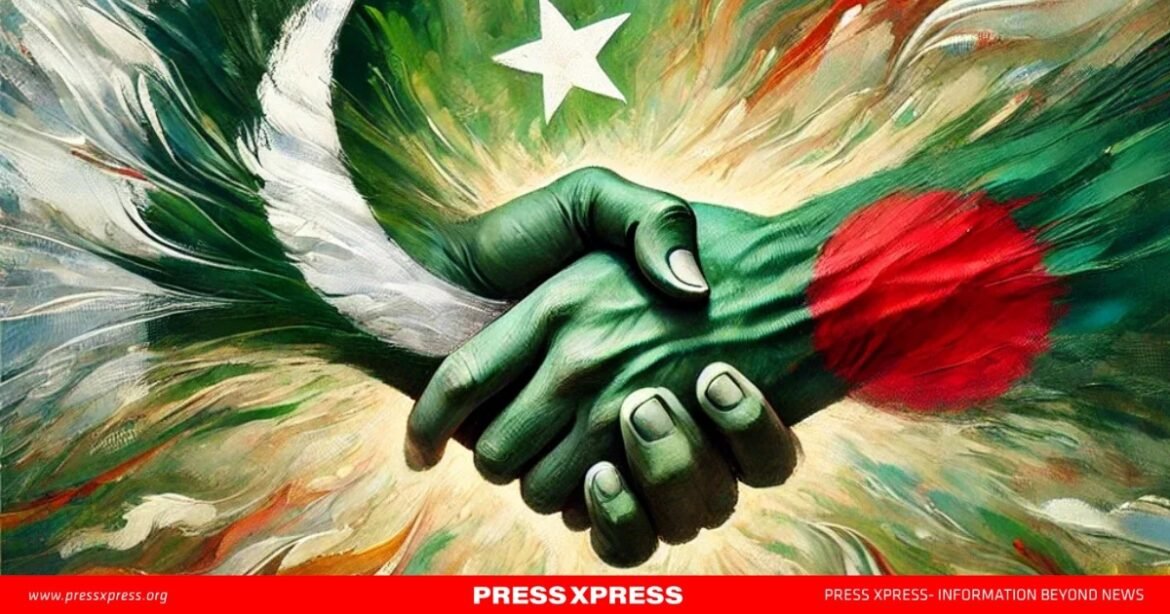Bangladesh, once a reliable partner in India’s South Asia strategy, is showing signs of shifting its foreign policy compass. In a series of recent developments, Dhaka’s interim government under Nobel laureate Muhammad Yunus has signaled warming ties with Pakistan—a country from which Bangladesh violently seceded in 1971. These moves come at a time when relations with New Delhi are at their most fragile in over a decade, raising pressing questions about the strategic future of the region.
The timing of this realignment is significant. Sheikh Hasina’s fall on August 5, in the wake of mass protests and growing discontent, has created a political vacuum in Dhaka. Under Hasina’s 15-year tenure, Bangladesh emerged as a stable economic success story and a geopolitical anchor for India in an increasingly volatile South Asia. Her government suppressed Islamist extremism, opened its markets to Indian investment, and maintained a critical role in regional security. For New Delhi, her departure has exposed deep vulnerabilities in its neighborhood diplomacy.
Pakistan Returns to Bangladesh: A Strategic Overture
The arrival of a direct Pakistani cargo ship at Chittagong Port in November, the first such instance in over five decades, has become more than a symbol of improved economic relations. It highlights Dhaka’s willingness to recalibrate ties with Islamabad, a move that has surprised regional observers. Previously, trade between the two countries occurred through third-party ports such as Singapore and Colombo, making the recent development both economically significant and politically charged.
While officials cite economic pragmatism—direct trade routes lower costs and improve efficiency—there is little doubt that the diplomatic undertone is deliberate. Pakistan’s High Commissioner to Bangladesh, Syed Ahmed Maroof, described the event as “a step toward greater regional integration,” reflecting Islamabad’s desire to expand its presence in Dhaka’s foreign-policy calculus.
India’s Growing Unease
The thaw between Dhaka and Islamabad comes at a time of escalating tensions between India and Bangladesh. Hasina’s government had been a pillar of India’s ‘Neighborhood First’ policy, providing stability and curbing cross-border militancy. However, under the Yunus-led interim administration, several moves have caused alarm in New Delhi. These include the reported relaxation of visa restrictions for Pakistani nationals, a decision that Indian security agencies fear could allow increased infiltration by hostile elements, particularly intelligence operatives.
Moreover, Bangladesh’s domestic political shifts are complicating India’s position. Islamist factions, long suppressed under Hasina, are gaining prominence. Reports suggest a systematic sidelining of bureaucrats aligned with the Awami League and the Hindu minority, replaced by figures with Islamist leanings. For India, these developments are more than a domestic concern—they pose broader questions of regional security.
The impact on Bangladesh’s minority Hindu population has been particularly acute. Recent incidents, including attacks on religious leaders, have intensified New Delhi’s unease. Given India’s current political landscape, where Hindu-majority sentiment plays a key role, the BJP-led government cannot afford to appear indifferent to these developments. Any large-scale exodus of Bangladeshi Hindus could ignite border tensions and further strain ties.
The Geopolitical Stakes of Realignment
The Yunus administration’s overtures to Pakistan are part of a broader foreign-policy recalibration, influenced by both domestic imperatives and external realignments. In meetings on the sidelines of the UN General Assembly, Yunus sought to revive SAARC—an organization that has been largely dormant due to India-Pakistan tensions. Yunus’s calls for greater regional cooperation hint at Dhaka’s interest in multilateralism, but they also reflect a strategic pivot away from India’s dominance.
For Islamabad, Bangladesh’s shifting posture presents an opportunity to undermine India’s regional influence. Trade, defense cooperation, and cultural ties are all areas where Pakistan hopes to gain traction. However, this rapprochement is unlikely to occur without costs. As Professor Imtiaz Ahmed of Dhaka University notes, “In diplomacy, you cannot afford to alienate major stakeholders like India. Any attempts to sideline New Delhi will have consequences.”
India’s Options in a Changing Landscape
India’s measured response to these developments reflects its confidence in the historic and cultural ties that bind New Delhi and Dhaka. External Affairs Minister S. Jaishankar’s emphasis on a “forward-looking foreign policy” underscores India’s ability to offer more sustainable, mutually beneficial partnerships compared to short-term geopolitical calculations that favor China and Pakistan.
India, as the region’s largest economy, continues to offer Bangladesh unparalleled opportunities for trade, investment, and infrastructure development without the risk of debt traps. Its leadership in sectors like technology, education, and health remains unmatched, making it an indispensable partner for Bangladesh’s growth ambitions. Security cooperation, strengthened trade ties, and shared regional priorities—including counterterrorism and climate action—highlight India’s enduring role as a trusted ally.
Conclusion: A Fragile Balance
The Yunus administration’s recalibration of foreign policy may offer symbolic or economic gains in the short term, but alienating India—a partner that has consistently supported Bangladesh’s sovereignty, economic progress, and regional security—carries significant risks. India remains Bangladesh’s most natural and stable partner, offering not just economic incentives but also a relationship built on trust, shared history, and cultural kinship.
As Dhaka navigates its geopolitical future, the D-8 summit in December will be critical. A course correction that prioritizes balanced ties with India over short-term alignments with Pakistan and China will safeguard Bangladesh’s sovereignty, economic stability, and its role as a key player in South Asia. In a region rife with uncertainties, India remains the anchor that Dhaka can rely on to secure a prosperous and independent future.


